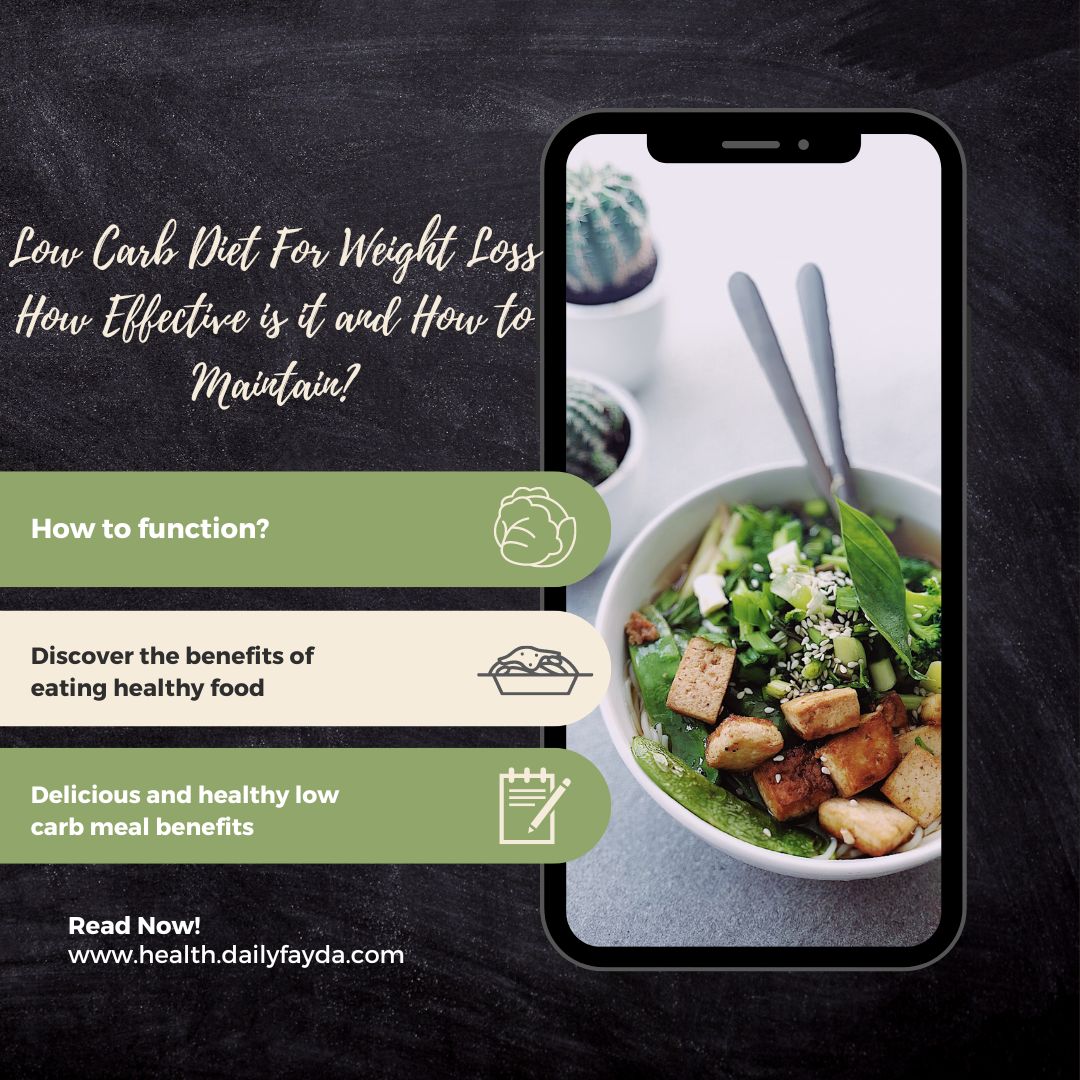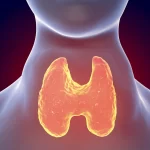
Low Carb Diet For Weight Loss: Recently low carb diet have been used as a weight loss strategy. Today, people are interested in low-carbohydrate approaches. While people reduce overall carbohydrate intake through this strategy, there is no clear consensus on what defines a low-carbohydrate diet. There are three macronutrients found in any food – carbohydrates (4 kcal/gram), fat (9 kcal/gram), and protein (4 kcal/gram). A low-carbohydrate diet is therefore defined based on studies as a percentage of daily macronutrient intake or total daily carbohydrate load. The article here will define it as:
- Very low carb (less than 10% carb) or 20 to 50 g/day
- Low carb (less than 26 percent carbohydrate) or less than 130 g/day
- Medium-carb (26% to 44%)
- High carbohydrate (45% or more)
Low Carb Diet For Weight Loss: How Effective is it and How to Function?
The low-carbohydrate diet approach stems primarily from the hypothesis that lowering insulin, a key hormone that produces an anabolic, fat-storing state, improves cardio metabolic function and induces weight loss. This strategy has recently been called the carbohydrate-insulin model. Studies show that low-carb diets are better and more effective than other diets for rapid weight loss for the first 6 to 12 months. While weight loss diets reduce calories, low-carb diets remain controversial. When reducing the amount of carbohydrates from the diet, the macronutrient intake of fat and protein is usually increased to compensate for the deficit in carbohydrates.
One hypothesis for why low-carbohydrate approaches cause faster weight loss than other diets is that fat and protein increase satiety and produce less concomitant hypoglycemia. This increase in satiety and less reversible hypoglycemia reduces appetite and overall food intake and creates a caloric deficit. Another hypothesis argues that a low-carbohydrate diet may produce more metabolic burn than a high-carbohydrate diet. In recent studies, an iso-calorie diet appears to have a metabolic benefit of burning about 200 to 300 more calories than a high-carbohydrate diet. However, these theories remain controversial.
The ketogenic (keto) diet, a specific low-carb version, deserves a mention. The keto diet restricts carbohydrates to induce nutritional ketosis and typically limits carbohydrates to 20 to 50 grams per day. Limiting carbohydrates to less than 50 grams causes glycogen depletion and ketone production from the accumulation of fat stored in adipose tissue. Nutritional ketosis produces ketone bodies (acetoacetate, acetone, and beta-hydroxybutyrate) and can be measured as serum or urine ketones. Nutritional ketosis typically raises serum ketones from 1 mmol/L to 7 mmol/L, but does not cause metabolic acidosis. Diabetic keto acidosis, by definition, includes metabolic acidosis, hyperglycemia, and serum ketones (usually greater than 20 mmol/L).
Despite the debate, it is clear from many systematic reviews that low-carb diets are more effective for weight loss than other diets.
How to maintain a Low Carb Lifestyle?
If limited initially or during the induction phase, full-fat dairy, legumes, and whole grains may also be added during this maintenance phase, as long as no hypersensitivity or adverse reaction targets are maintained and tolerated. A lifelong maintenance phase for weight loss can then be continued according to the patient’s preference. Periodic monitoring of cardiovascular risk markers and control of cardio metabolic disease should also be a priority. People with type 2 diabetes require close monitoring for hypoglycemia, and tapering of insulin or hypoglycemic drugs is prudent with rapid declines in fasting glucose.
Is it healthy to cutting carbohydrate?
Reducing carbohydrates benefits our cardiovascular and metabolic health. Lowering our intake of this macronutrient can also help with weight loss and improve our mood.
However, it comes with downsides. Carbohydrates are found in many healthy foods, especially fruits and whole grain products. Decreasing this means you will also struggle to get enough fiber and important nutrients, possibly requiring you to resort to supplements.
Even if done regularly, carbohydrates are the preferred source of energy for your brain and not getting enough of them can lead to brain fog and mental fatigue. They are also important in enhancing sports performance, especially when it comes to endurance-type activities.
So is it healthy to cut carbs? In short, yes and no – the answer depends on your individual needs, health status, personal circumstances and capabilities. If in doubt, it’s always a good idea to consult a medical professional before starting a low-carb diet.







2 thoughts on “Low Carb Diet For Weight Loss – How Effective is it and How to Maintain?”